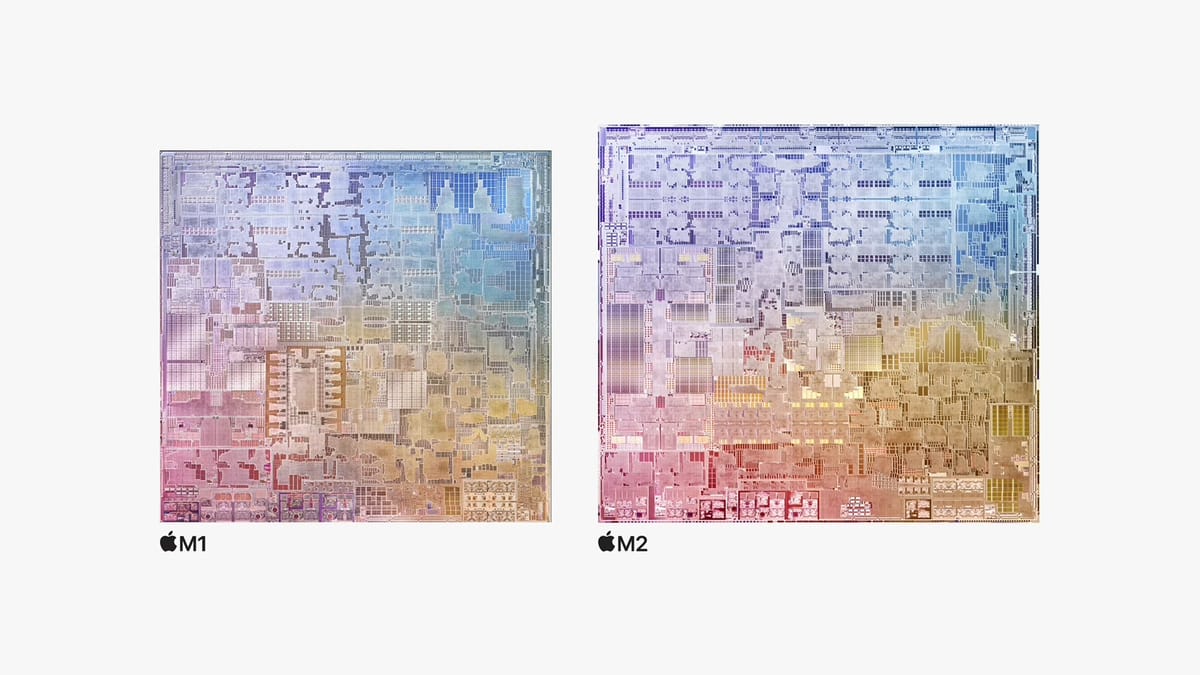
Apple announced its new Arm-based M2 chip at WWDC22 yesterday, bringing a boost to transistor count and performance over the M1 – but staying on a 5nm fabrication process.
In 2020 Apple started the process of ditching Intel CPUs, with the wildly successful M1 SoC and its later, beefier siblings, the M1 Pro, M1 Max and M1 Ultra. Rumours around the Apple M2 chip last year suggested it would make use of fab giant TSMC’s new 3nm process – but this process, dubbed N3, has hit delays in reaching high-volume production.
See also: With punchy new M1 Pro, M1 Max chips, Apple drops Intel
Late last month semiconductor industry analyst Ming-Chi Kuo predicted Apple would be limited to using the N5P process for any new chips, with the next-gen N4P 5nm process unavailable until 2023. But yesterday the Mac maker confirmed it will use TSMC’s N4P fabrication process for the Apple M2 chip.
While N4P doesn’t bring the same size and efficiency improvements as a move to 4nm or 3nm, it does allow chips to be 6% smaller than those made with the N5 process, such as the M1. N4P will also bring an 11% performance boost and 22% power efficiency improvement over N5, and use a "simpler" manufacturing process.
What this means for the Apple M2 chip over the M1 is: 20 billion transistors, up 25%; 10 cores instead of eight; 18% better CPU performance; 35% better graphics performance; 40% better neural engine performance; and 35% better performance at maximum power. The new Apple M2 chip also has 50% more memory bandwidth, and can use up to 24GB of RAM, up from 16GB – addressing one of the complaints about the M1.
The firm also claimed the Apple M2 chip could go toe-to-toe with some of the latest laptop processors from Intel and AMD, delivering “the peak performance of the PC chip while using just a quarter of the power” compared to a 10-core Intel Core i7-1255U.
Follow The Stack on LinkedIn
“When compared to the latest 12-core PC laptop chip — which needs dramatically more power to deliver an increase in performance and is therefore found in thicker, hotter, more noisy systems with less battery life — M2 provides nearly 90% of the peak performance of the 12-core chip while using just one-fourth the power,” said Apple’s M2 chip press release.
The new Apple M2 chip will be available in the redesigned MacBook Air, and the less-redesigned MacBook Pro, from next month.
Apple didn’t release any information about M2 Pro or Max versions, but based on how the M1 range evolved after its initial launch, we would expect the Apple M2 chip to add new higher-power variants over the next year.
Apple’s success in delivering Arm-based CPUs which can actually deliver comparable performance to x86 has sent shock-waves through the industry – and has spurred others to develop their own Arm-based chips, such as Amazon’s Graviton CPUs for use in its AWS servers.